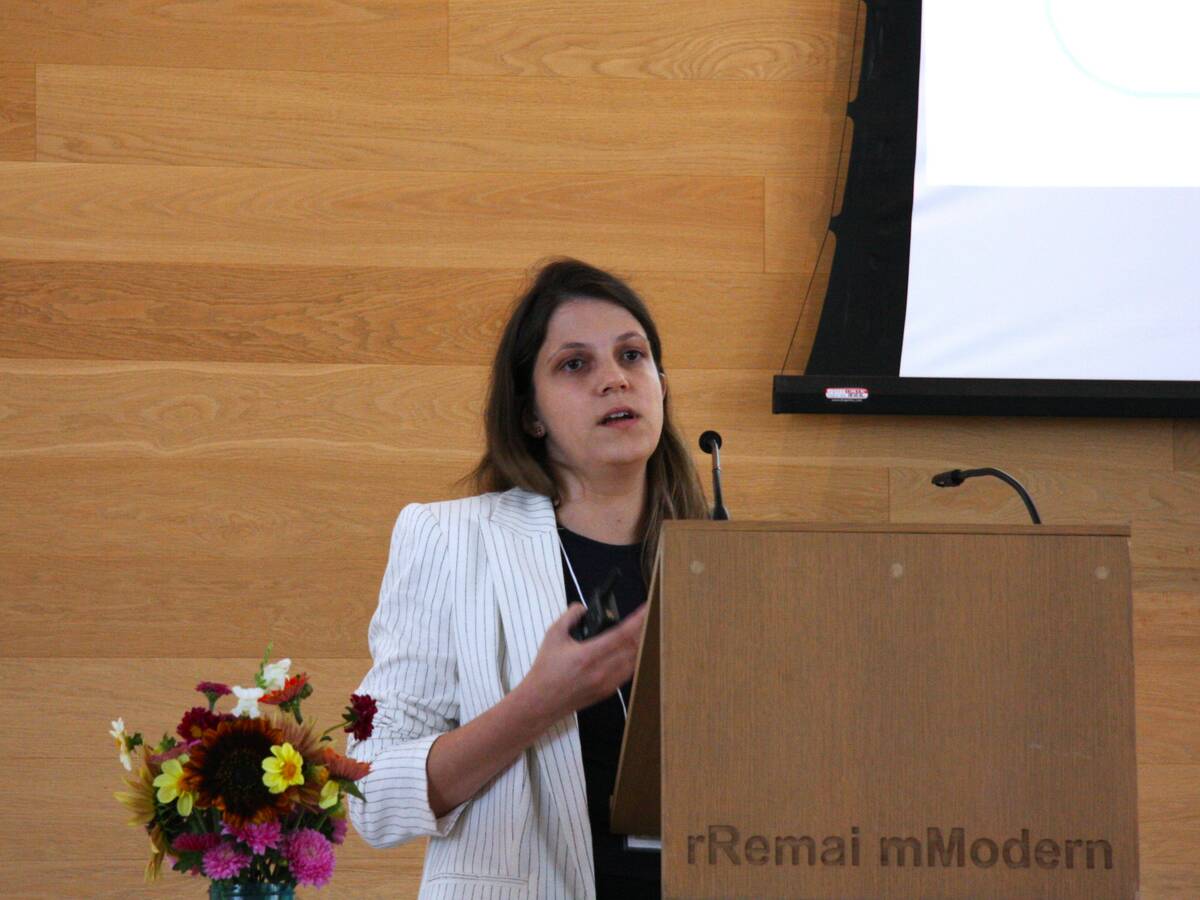Sustainable agriculture farming | Grain industry changes may prompt miller to source wheat from the West
Changes to the grain industry in Quebec could prompt a miller in that province to look west for wheat crops grown with fewer chemicals.
The move revisits an idea previously left dormant on the Prairies.
Elisabeth Vachon, an agronomist with Moulins de Soulanges, a miller that produces specialty flour, said the company may need to expand its search for growers after producers in Quebec voted in a springtime referendum to close their wheat pool following the 2011-12 season.
The company signs contracts ahead of the growing season to produce a wheat crop grown without fungicide and herbicide applications, paying them a $40 per tonne premium to do so.
Read Also

Fusarium head blight mycotoxin detector in the works
A PhD student at the University of Saskatchewan has been working on developing a method of detecting fusarium damaged kernels to ease the struggles of producers, agronomists and industry.
“Most of them were not satisfied with (pooling), so they wanted to make contracts with us because that was the way out of it. That’s how we got them, with the premium and the fact that they didn’t have to really go through the system,” said Vachon.
“But now that the grain commission is not there anymore, it’s going to be different.”
A pesticide-free production (PFP) system isn’t organic but does prevent the use of genetically modified seeds and in-crop herbicide and pre-emergent soil-residual herbicides in certain crops.
Non-residual herbicides can bookend the growing season, and other crops in the rotation are grown conventionally.
A long-term rotation study near Carman, Man., has studied the concept, which was discussed on the Prairies in the early to mid-2000s as a way to reduce farmers’ input costs while providing a premium for their product and possibly slowing the spread of weed resistance.
“I think what we’ve learned is that just delays things,” said Rob Gulden, a University of Manitoba researcher who watches over the Carman rotation, which produces pesticide-free oats and flax.
“A crude economic analysis suggests that occasional in-crop herbicide omissions, particularly in competitive crops, may increase net revenues by saving the costs of herbicide while having no major impact on weed populations and crop grain yield,” he wrote in a summary of the rotation published in the most recent Prairie Soils and Crops Journal.
Wheat growers in Quebec battle humidity and fusarium. Instead, there has been a move toward shorter, more lucrative soybean-corn rotations.
Vachon said the company’s $40 premium often won’t cover quality and yield losses on wheat crops grown without chemicals.
Gulden said the results of the rotation study haven’t been overwhelming.
“Certainly, if you omit herbicides in a crop that’s not very competitive, like flax, you’re going to raise your seed banks, but in the end does that really matter in terms of yield in other crops?,” he said.
“We don’t have any evidence that it does much to yields in other crops that are competitive where you have good herbicides available.”
A small pesticide-free movement mobilized at the time that the Carman rotation was launched. Research funds were collected, the University of Manitoba trademarked Pesticide Free Production and a producers’ group with more than 40 members began looking for markets for PFP crops, including barley, sunflowers, pulses and flax.
Hundreds more were introduced to the principle through extension meetings, said Martin Entz of the U of M, who helped develop the principle.
However, the Canadian Food Inspection Agency prevented the group from marketing products as “pesticide-free” because the system allows for a pre-emergent glyphosate burnoff, and the movement lost momentum.
“We thought this was going to be a real important program for a long time in Canada,” said Entz. “Unfortunately, it died a very swift death when the federal government said no.”
Vachon said Moulins de Soulanges has its own accreditation and markets its product as “sustainable agriculture farming.”
The company does buy some conventionally grown wheat and blends it with other flour for its specialty product, but 85 percent of the wheat that it had bought last year was grown under a PFP system.
It had worked with 400 Quebec producers a few years ago, but that has since fallen to 250 larger producers growing 25,000 tonnes of wheat, she said.
Gulden said the Quebec initiative is intriguing.
“It’s a small market in Quebec,” she said. “There’s an interest in that whole principle again, which is kind of interesting.”
Vachon said the company wants to buy all the wheat for its new mill from Quebec, but that might not be possible.
“There is a very, very strong interest because it’s so simple,” she said.
“When you go out west, you talk to a couple of people and it’s very easy to get volume compared to Quebec.”














